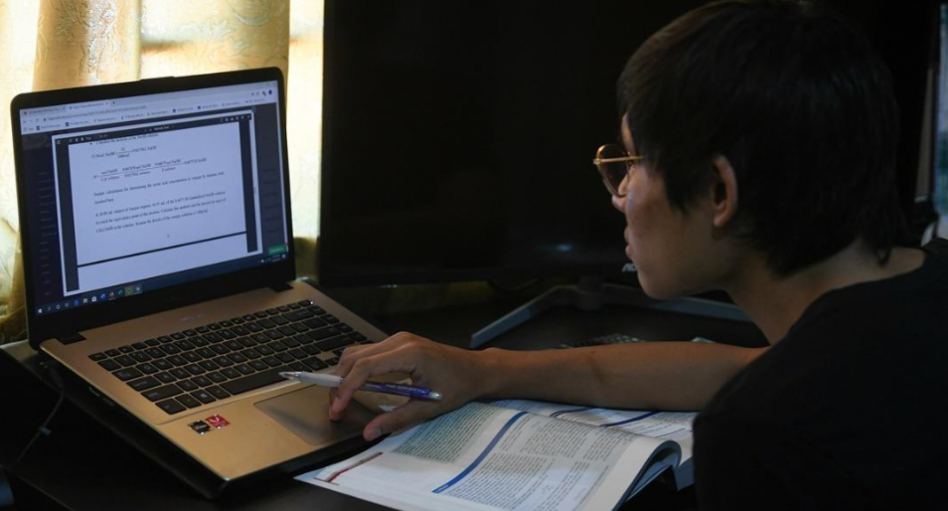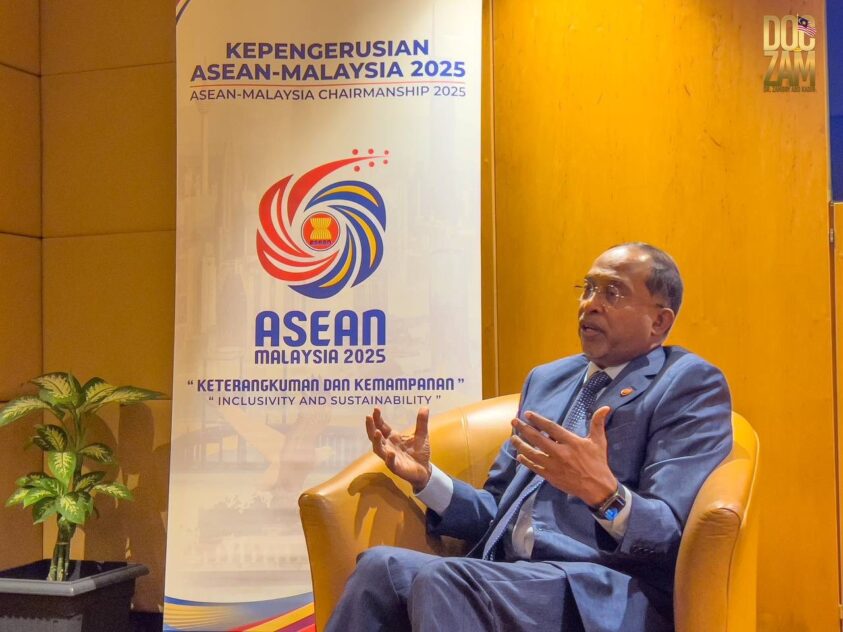DIGITAL skills are the skills required to “use digital devices, communication applications and network to access and manage information,” from basic online searching and emailing to specialist programming and development.
However, education and training institutions in the country have not been able to equip students adequately with the digital skills that growth industries required even well before the COVID-19 era.
The digital skill gap continues to widen between the well-off and underprivileged students due to unequal access to digital devices or Internet connectivity. Lockdown measures over the past two years have constrained ability among the underprivileged to follow up the course syllabuses or take extra hours to learn relevant digital skillsets online.
In turn, this has exacerbated the foundational digital skills of students. In the near future, we can expect the situation to be “tighter” for employers as (they continue to) face a tough time recruiting the right talent because graduates do not possess the related digital skills required in the job market.
Nevertheless, till today, colleges and universities have not been able to keep up with the industrial needs of the market, leading to constant criticisms about the quality and type of graduates produced.
Students may be geared theoretically to solve most problems on paper but, often times, they could struggle to solve real-life work problems and may not have been properly equipped with the necessary skills to do so, in practice.
As highlighted in ‘Techtalk – Education: Are our universities lagging behind in their tech-related courses?’, higher educational institutions’ accreditation by the Malaysian Qualifications Agency (MQA) is laborious and bureaucratic. It could take almost four years for MQA to vet and finally approve a programme.
In addition, the internal standards process of the higher educational institutions can take up to a year. By then, the industry and market landscape could have already evolved drastically.
The overall situation becomes acute when some companies decided to adopt full-time remote working even after the lockdowns (as part of “living with COVID-19”).
This inevitably leads to a higher demand for emerging job roles that require specialised digital skills but that which cuts across the data management networking such as hyperconverged infrastructure (HCI) – which combines of common data-centre hardware with intelligent software to create flexible storage networks.
Nonetheless, the pace of skills transformation is much slower than the pace of digital transformation in Malaysia – arising from a shortage of digital talent in the country.
For instance, Malaysia ranked 46th (with 57% proficiency) in Coursera’s Global Skills Report last year – way behind Singapore (10th) and Vietnam (20th). Indonesia ranked 45th.
While Malaysian learners were well-versed with digital skills like cloud computing (91% proficiency) and data analysis (79%), there is a significant skills gap across the business (53%), technology (56%) and data science (52%) domains.
PwC also revealed in its ‘Hopes and Fears Survey 2021′ that only 19% of Malaysians were confident in their digital skills – which is sufficient for them to perform their jobs.
In contrast, 78% of Malaysians stated that limited technology access restricted their ability to develop skills required in the job market.
Notwithstanding, the Malaysia Digital Economy Blueprint (MDEB) and the MyDIGITAL Initiative contain ambitious plans to generate and nurture agile and competent digital talent between the 2021 to 2030 period.
Yet, at the formative level (ie. at the primary and secondary school levels), there is uncertainty as to the sustained quality of the digital packages that are required to ensure all schools in the country have good Internet connectivity.
Other than the mere mention of three Internet service providers (ISPs) under the 12th Malaysia Plan with the termination of 1BestariNet programme, and the launch of the Digital Educational Learning Initiative Malaysia (DELIMa) in July 2019 to enhance digital learning in schools, there is no clarity as to the quality of service (QOS) and service guarantee commitments.
In addition, there is no specific target set on how many teachers have to fully embrace the use of digital tools and technology in teaching, learning and administrative work together with the corresponding outcome.
MDEB only indicated that all primary and secondary school teachers must undergo the My Digital Teacher training programme under the supervision of the Ministry of Education (MOE) by 2025.
Nonetheless, the Government’s plan to align curriculum design of higher education institutions and in-demand digital skills of the industry by 2025 is a strategic move to improve the capability of students to be future work-ready.
In short, beyond addressing the digital infrastructure needs of the nation for improved broadband access and internet speed, the current administration also has to resolve the digital skill gap between graduates and the skills demanded by employers today.
Hence, EMIR Research has the following policies to recommend:
- The orientation and pedagogy of the syllabus, programmes and courses have to continuously evolve, keeping up with the rising demands of the digital economy. This means keeping constant tabs on the latest and up-to-date developments which should be incorporated in real-time into the curriculum.
And while emphasising digital skills, the higher educational institutions should also work closely with industry on the mastering of soft skills such as critical thinking and problem-solving that are specific and practical to a particular technical requirement or competency. - Internships and apprenticeships must be prioritised and properly balanced with the classroom ecosystem. The exposure and experience should also include overseas locations as part of the curriculum.
Furthermore, a rotational scheme should also be promoted whereby there would be several internship experiences in different digital sectors or sub-sectors over the period of three to four years of university life, further enhancing the students’ exposure and familiarity with rapid changes in industry demand. - Within the classroom scenario, small-group tutoring involving industry partners should be introduced so as to balance between theory and practice, bridging any impending skill gaps.
- Technical and vocational education training (TVET) institutions should collaborate with higher educational institutions for cross-learning and promote sharing of technical knowledge and experience.
- Accreditation of primary, secondary and tertiary syllabuses on digital subjects should involve the industry. The industry should also have a greater say in designing and vetting the curriculum, to enable the fast-tracking of the accreditation and standards process that is responsive to industry needs.
- Role-playing and gamification should also be introduced or expanded for STREAM (Science, Technology, Reading, Engineering, Arts and Mathematics) education and ideally should be implemented in English. This achieves the purpose of enhancing English language proficiency alongside opening new horizons.
As mentioned by Simpang Renggam MP and former education minister Dr Maszlee Malik, digital skills are a passport to new opportunities for millions of Malaysians and a building block to attract investment, innovation and new jobs in a global economy.
As digital skills become must-have skills in future jobs, intimate strategic collaboration among the government, industry, academia, TVET and other relevant stakeholders – is critical in ensuring wide-scale digital reskilling and upskilling in both the pre-employment and employment ecosystems.
And by continuously reforming/improving and adapting the curriculum (in the education system), the end result is higher standards leading to better employability, and not least sought-after digital skills. – Feb 05, 2022
Amanda Yeo is research analyst at EMIR Research, an independent think tank focused on strategic policy recommendations based on rigorous research.
The views expressed are solely of the author and do not necessarily reflect those of Focus Malaysia.









